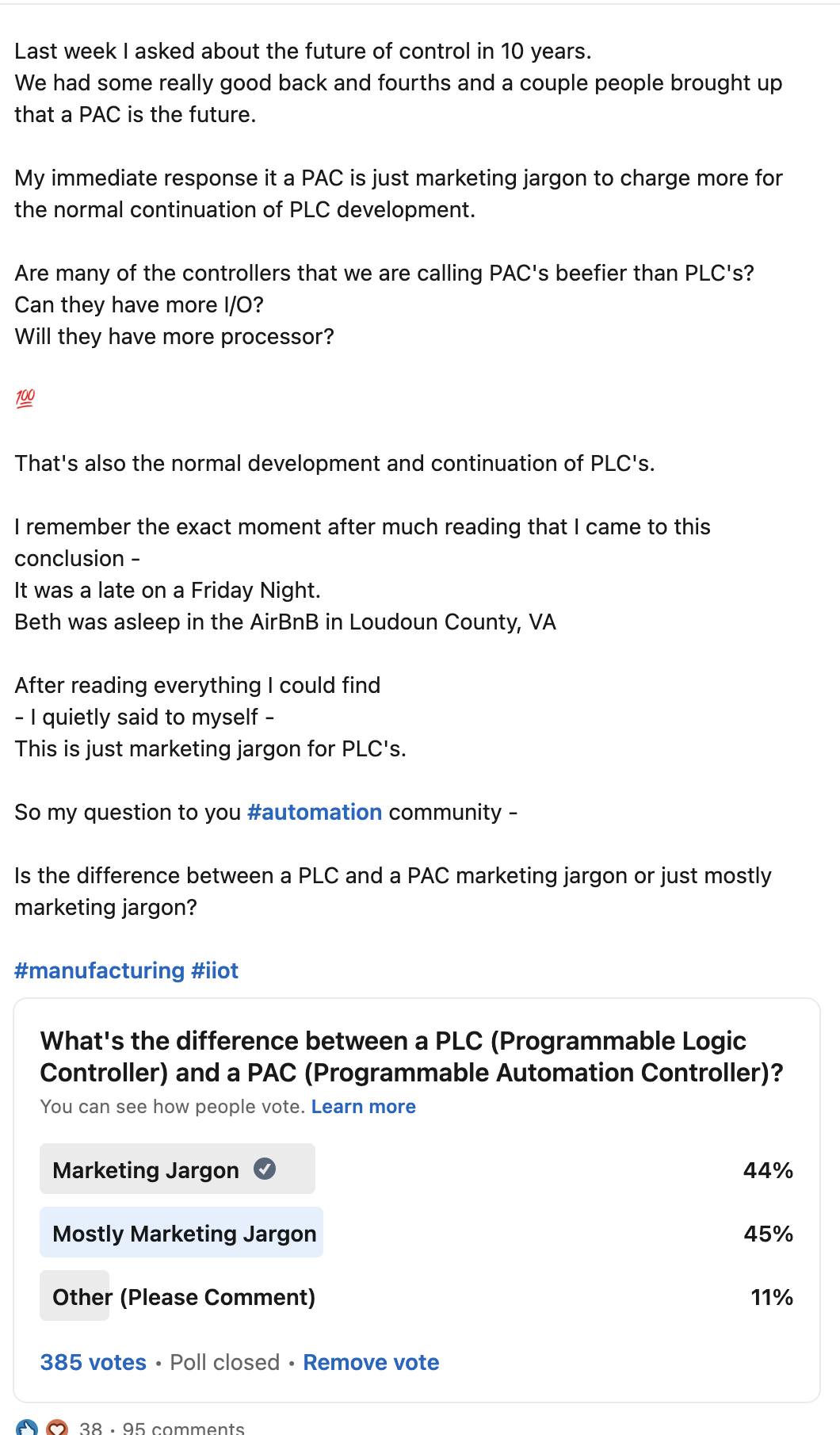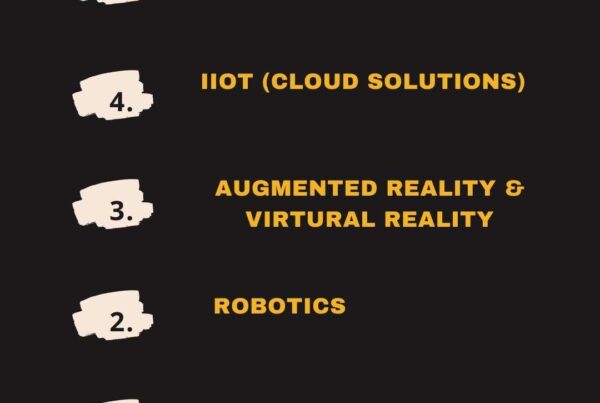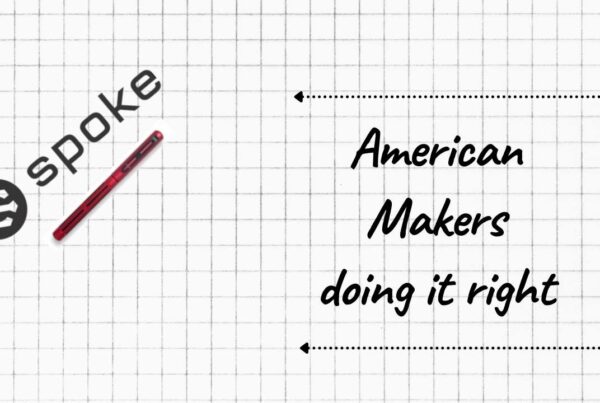𝑾𝒉𝒂𝒕’𝒔 𝒕𝒉𝒆 𝒅𝒊𝒇𝒇𝒆𝒓𝒆𝒏𝒄𝒆 𝒃𝒆𝒕𝒘𝒆𝒆𝒏 𝒂 P̳L̳C̳ 𝑷𝒓𝒐𝒈𝒓𝒂𝒎𝒂𝒃𝒍𝒆 𝑳𝒐𝒈𝒊𝒄 𝑪𝒐𝒏𝒕𝒓𝒐𝒍𝒍𝒆𝒓 𝒂𝒏𝒅 𝒂 P̳A̳C̳ 𝑷𝒓𝒐𝒈𝒓𝒂𝒎𝒂𝒃𝒍𝒆 𝑨𝒖𝒕𝒐𝒎𝒂𝒕𝒊𝒐𝒏 𝑪𝒐𝒏𝒕𝒓𝒐𝒍𝒍𝒆𝒓?
Last week I asked about the future of control in 10 years.
We had some really good back and fourths and a couple people brought up that a PAC is the future.
My immediate response it a PAC is just marketing jargon to charge more for the normal continuation of PLC development.
Are many of the controllers that we are calling PAC’s beefier than PLC’s?
Can they have more I/O?
Will they have more processor?
💯
That’s also the normal development and continuation of PLC’s.
I remember the exact moment after much reading that I came to this conclusion –
It was a late on a Friday Night.
Beth was asleep in the AirBnB in Loudoun County, VA
After reading everything I could find
– I quietly said to myself –
This is just marketing jargon for PLC’s.
So my question to you #automation community –
Is the difference between a PLC and a PAC marketing jargon or just mostly marketing jargon?
Over the course of 385 votes, 95 comments, and almost 29,000 views….
What’s the difference between a PLC (Programmable Logic Controller) and a PAC (Programmable Automation Controller)?
Marketing Jargon 44%
Mostly Marketing Jargon 45%
Other (Please Comment) 11%
See all the LinkedIn Poll results.
Be sure to check out everything Dave writes: Dave-Griffith.com
Of note…
There was a surprisingly large variation in opinions. Many people agreed with my assertion that it was marketing jargon. Some were asserting that there was a major difference beyond just a normal design and upgrade cycles of “legacy PLC’s”.




